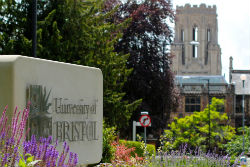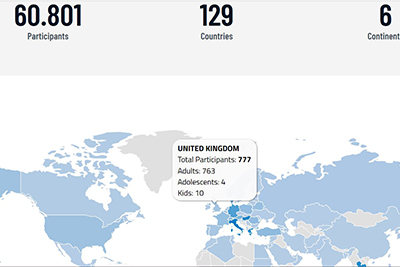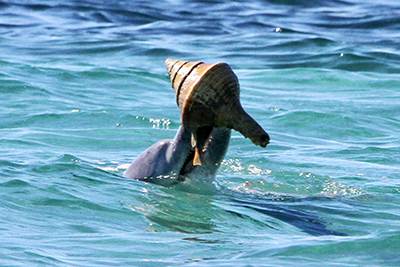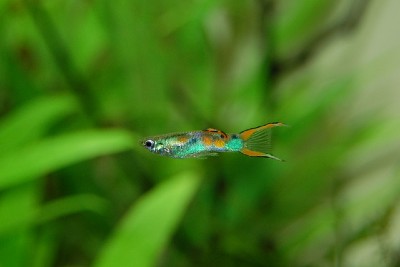Novel pathology could improve diagnosis and treatment of Huntington’s and other diseases
Bristol scientists have discovered a novel pathology that occurs in several human neurodegenerative diseases, including Huntington’s disease.
Bristol scientists have discovered a novel pathology that occurs in several human neurodegenerative diseases, including Huntington’s disease.
Modelling of the Chicxulub asteroid impact 66 million years ago shows it created a world largely unsuitable for dinosaurs to live in.
SETsquared Bristol has been awarded ‘Hottest Accelerator’ in Europe at The Europas 2020 in recognition of its work to support over 250 start-ups.
A new research project is asking for people with diabetes and their carers to take part in a UK-wide online survey that aims to identify how to best support people with the condition during the pandemic.
A new polymeric heart valve with a life span potentially longer than current artificial valves that would also prevent the need for the millions of patients with diseased heart valves to require life-long blood thinning tablets has been developed by scientists at the universities of Bristol and Cambridge. The team's latest in-vitro results, published in Biomaterials Science, suggest that the PoliValve could last for up to 25 years.
Chemists, biochemists and physicists at Bristol, Exeter and Sheffield have teamed up in a £7.25 million five-year project that could drive down the cost of energy production and help in the government’s net zero carbon ambitions
Research and teaching in key areas at the University of Bristol is among the best in the world, according to a new international league table.
The COH-FIT project is currently the largest survey worldwide on the health impact of COVID-19 and is endorsed by the World Psychiatric Association. The study aims to identify risk and protective factors for physical and mental health problems and to guide strategies for remedying these problems. The COH-FIT project involves 200 researchers from 35 countries, including Bristol, aims to help scientists understand how different countries have been affected by the pandemic.
A new study demonstrates for the first time that dolphins can learn foraging techniques outside the mother-calf bond – showing that they have a similar cultural nature to great apes. The findings, led by an international research team including academics at the University of Bristol, are published in Current Biology.
The South West is on track to become an international trailblazer in screen-based media thanks to £46 million funding, which will launch a creative media powerhouse called MyWorld and supercharge economic growth, generating more than 700 jobs.
A new study led by researchers from the University of Bristol has shown that not all saber-tooths were fearsome predators.
A significant number of British Halal meat-eaters might be persuaded to switch to meat from stunned animals, if they were reassured that some forms of stunning are compatible with Halal rules, suggest the results of a survey published in Vet Record this week.
The creation of social enterprise company IRISi, which helps survivors of domestic violence and abuse get specialist help, has won a national award.
The University of Bristol is pleased to announce the appointment of Professor Philip Taylor to the post of Pro Vice-Chancellor for Research and Enterprise.
In a new study, published in the journal Nature, an international team of scientists provide the first conclusive evidence directly linking deep Earth’s water cycle with magmatic productivity and earthquake activity.
A team at Bristol has challenged the idea that touchscreens are limited to 2D and rectangular shapes by developing an interactive display that can be sprayed in any shape.
Three members of the School of Chemistry have received awards from the Royal Society of Chemistry.
The World Health Organisation has regularly said that rapid testing of patients with COVID-19 is critical to controlling the pandemic, especially with lockdown measures easing across the globe. A new research project will explore the development of a low-cost, rapid, COVID-19 diagnosis system using nanophotonic fluorescence enhancement.
The role genetics and gut bacteria play in human health has long been a fruitful source of scientific enquiry, but new research marks a significant step forward in unraveling this complex relationship. Its findings could transform our understanding and treatment of all manner of common diseases, including obesity, irritable bowel syndrome, and Alzheimer's disease.
Early signs of being more susceptible to type 2 diabetes as an adult can be seen in children as young as 8 years old, decades before it is likely to be diagnosed, according to a new study published in Diabetes Care today [19 June 2020].
A Wiltshire dad is preparing to celebrate Father’s Day with his daughter – the first since she was born with a serious heart defect.
A team of Bristol researchers observed the exploratory behaviour of ants to inform the development of a more efficient mathematical sampling technique.
Young people’s anxiety levels have doubled during the COVID-19 pandemic with 24 per cent experiencing anxiety up from 13 per cent in pre-pandemic waves, according to research from the University of Bristol.
By analysing the fossilised jaw mechanics of reptiles who lived in the Severn Channel region of the UK 200-million-years ago, researchers from the University of Bristol have shown that they weren’t picky about the types of insects they ate - enjoying both crunchy and less crunchy varieties.
In a study published in the journal Addiction, University of Bristol researchers have found evidence for a causal link between prolonged experience of loneliness and smoking.
Scientists have discovered an important cell signalling pathway in the kidney which if stopped, could hold the key to treating chronic kidney disease as well as other deadly conditions, including heart attack and stroke.
Public opinion is largely shaped by online content people read and spread via social media. Major web platforms such as Google and Facebook serve as hubs, distributors, and curators; their algorithms help us navigate the online world but underlying the vast digital landscape is a sea of misinformation. In a new study, published in Nature Human Behaviour, researchers from the Max Planck Institute for Human Development, the University of Bristol, and Harvard Law School propose interventions to help users distinguish misinformation from fact and promote a more democratic internet with autonomy and transparency.
The employment prospects of some ethnic minorities have improved since the 1970s but still lag behind the white majority because of “persistent racism”, a major new study says.
Improved care for people with heart and circulatory disease suffering from COVID-19 could soon be available after the British Heart Foundation (BHF) and National Institute for Health Research (NIHR) announced support for six flagship research programmes. Researchers from across the UK including the University of Bristol will combine data from hospitals, information about our health and lifestyle, genetic studies, and cutting-edge imaging and artificial intelligence techniques to better understand how the virus affects the heart and circulatory system.
Trinidadian guppies behave like matadors, focusing a predator’s point of attack before dodging away at the last moment, new research shows.
The focus of the Black Lives Matter campaign was on Bristol at the weekend as many around the world watched protestors remove the statue of slave trader Edward Colston from the city centre and throw it into the docks.
Three quarters of crop species depend on pollinators, but the service they provide is under increasing threat from climate change. An international collaboration, led by the University of Bristol, will investigate the effects of climate change on pollinators and people’s diet thanks to funding of nearly €1 million from The Belmont Forum.
A new study looking at extinct camelids - ancestors of today’s camels and llamas - tells the story of North America’s ancient savannas and highlights how past climatic and environmental conditions influenced the composition of mammalian faunas.
The University of Bristol has been named as the world’s 58th best university in the latest QS World University Rankings 2021 released today [10 June].
The University of Bristol has risen two places to 14th overall in the latest Complete University Guide 2021, which also ranks it 9th in the UK for the quality of its research.
Ron Johnston, who has died aged 79 after a short illness, was one of the most influential geographers of his generation. Colleagues David Manley, Robert Mayhew and Richard Harris offer this remembrance.
Bristol must make significant changes to its transport sector in order to meet its 2030 carbon neutral target, according to a new report led by a team of postgraduate students at the University of Bristol.
Bristol’s Commission on Race Equality have appointed Professor Olivette Otele as their new independent chair to take forward the city’s aspirations in diversity and inclusion and to challenge the history of disadvantage that has been experienced by ethnic minorities in the city.
The advantages of animals foraging in an orderly group are well-known, but research by the University of Bristol has found an element of unruly adventure can help fish in the quest for food.






































